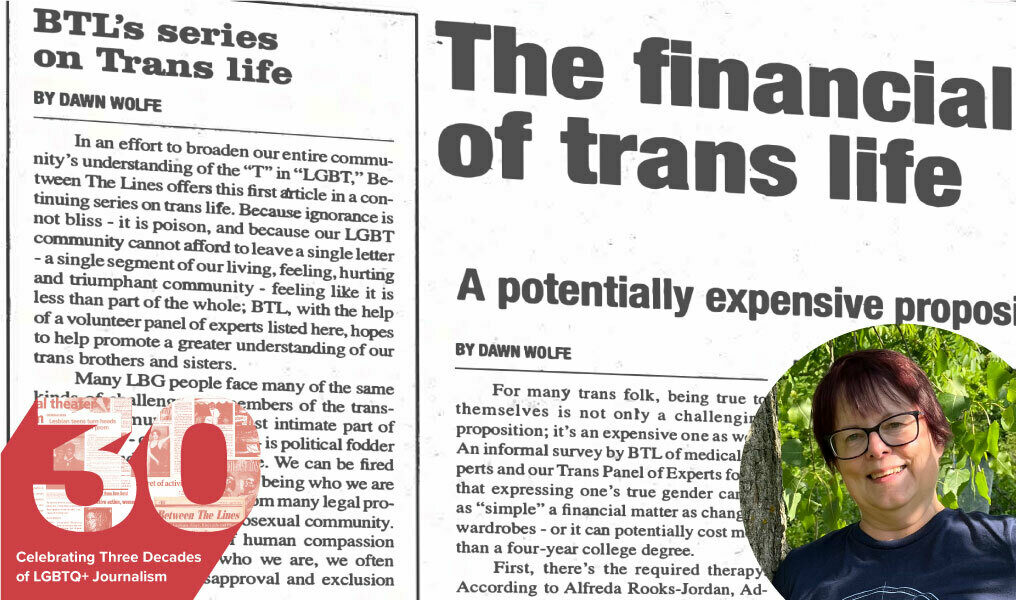Sept. 2, 2004: The Financial Burden of Trans Life
This article is part of a series commemorating the 30th anniversary of Pride Source's print publication, Between The Lines

My passion to advocate for the rights and dignity of transgender people was born on a newspaper delivery route. As a new BTL hire during the summer of 2004, I was asked one week to partner with our receptionist, Pam, to get the papers out.
Now, I was and am a science-fiction geek, and the geek social circles I was just starting to run in included trans folks. In the tried-and-true tradition of socially awkward people everywhere, though, the idea of actually asking any of them anything more personal than “Who’s your favorite author?” felt like an interpersonal landmine.
But in a delivery truck with a single person? Someone who was open, friendly, seemed to share my sense of humor, and also happened to be a trans woman? I asked Pam’s permission to ask about her life. She very generously agreed. The things she told me about — the bigotry, danger and hate laws that trans people were enduring in the 21st century — made me angry enough to punch walls.
As a journalist, I could do something a lot more effective than bruising my knuckles.
In the years that followed, it was my honor to meet and report about heroes like Rachel Crandall Crocker, Denise Brogan-Kator, C.J. Tune-Copeland and so many more amazing, generous, beautiful and proud trans men and women who put their lived reality on the line, and in the pages of BTL, as activists and organizers, protectors and creators who at the time faced discrimination and isolation both from the wider culture and within spaces that were supposed to be L,G,B and T.
Looking back, my greatest error in those days was my failure to urge the former owners of BTL to hire trans writers to cover this community. Trans stories can and should be told by trans people whenever possible. At the same time, though, those of us in the rest of the rainbow share the responsibility of reporting about, fighting alongside and supporting our trans siblings against the forces that are working hard to oppress us all. I hope that my work — past, present and future — plays at least a small part in honoring that responsibility.









